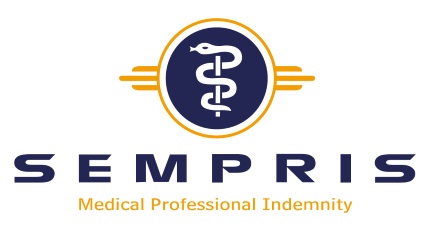There are over 235,000 doctors registered and licensed to practice by the General Medical Council (GMC) in the UK with more than 73,000 registered as specialist doctors. As well as issuing the licences the GMC is responsible for ensuring that every patient gets a high standard of care.
In order to do this there are legal regulations in place outlined in The Medical Act. The GMC also has to also ensure the medical profession in the UK is working within European laws so it is highly regulated.
As part of their responsibilities the GMC has put in place statutory requirements relating to insurance and indemnity. These regulations protect the patient and ensure that if anything goes wrong there is a way they can claim compensation.
Doctors and insurance cover
All doctors in the UK must have insurance in order to practice.
Point 63 of the regulations relates to insurance:
- You must make sure you have adequate insurance or indemnity cover so that your patients will not be disadvantaged if they make a claim about the clinical care you have provided in the UK.
The GMC is the regulator and is responsible for ensuring all medical practitioners are covered. New powers passed by parliament came into effect in August 2015 and give the GMC the powers to check that a doctor practising in the UK has the appropriate cover. This enables them to remove the doctor’s licence, or refuse to give a licence, if there is no cover in place or if there is a refusal to provide information on the cover.
The type of cover is relevant to where a doctor works and the work they do, whether employed or self-employed. The GMC must ensure that a doctor has appropriate insurance for the type of work they do and the clients they work with. For specialists in sports medicine, it is worth getting advice from a company such as SEMPRIS to discuss the insurance options.
If you change your job or change employer then you will need to review your insurance and check that it will provide appropriate cover in your new role.
Employers using the service of a doctor are also advised to ensure their indemnity insurance is appropriate for the role and should check if unsure.
GMC Procedures if something goes wrong
In 2014 over 5,808 complaints had been received by the GMC about doctors. When a complaint is made or concerns are raised regarding a medical professional, it is the GMC’s task to investigate and ensure there has not been any malpractice on the part of the doctor concerned. The GMC’s role is to ensure that a patient’s health has not been put at risk.
The GMC will advise doctors under investigation to seek legal advice. It is at this stage that the medical professional might want to use their insurance and medico legal cover to get advice and support.
When a complaint is received, the GMC will interview all parties involved and review paperwork and documentation. In some cases they may carry out a provisional enquiry to decide whether an investigation is required. Where no investigation is required, the GMC will refer the complaint to a responsible officer, this might be an employer or a senior doctor, who will report back to the GMC.
If the GMC decide to investigate there are a number of actions they might take, from issuing a warning, placing conditions on the doctor’s registration or, in serious cases, removing the doctor from the medical register. Once the investigation has been completed two case investigators – who are usually senior staff from the GMC, one medical, the other non-medical – will review the evidence and decide on the next step:
- Take no further action
- Issue a warning
- Agree undertakings
- Refer to the Medical Practitioners Council
Both parties must agree on the next step. Where there is no agreement the case will be referred to the investigation committee who will make the decision. The final outcome is relayed to the doctor and complainant. Where the outcome relates to a health issue, it is considered private and the complainant is not notified of the reasons.
A warning may be issued if there is a cause for concern or there is considered to be a significant departure from the principles set out in the GMC guidance.
An undertaking is an agreement between the GMC and the doctor about future practice and may include restrictions or a commitment to practise under medical supervision or undergo training.
The Medical Practitioners Tribunal Service
If a case is referred to the Medical Practitioners Tribunal Service (MPTS) all evidence is heard by a team of specially trained people both medical and non-medical. It is part of the GMC but operationally separate and accountable to Parliament. Hearings are held in public (unless health related) at the MPTS hearing centre in Manchester.
At the end of a hearing, tribunal members may decide that no further action should be taken or they might issue a warning. If the tribunal finds that a doctor’s fitness to practice is impaired there are a number of actions they can take including:
- Supervised medical work and restrictions
- Prevention from practicing through suspension from the medical register
- Removal from the medical register for five years or life.
There is an option to appeal against any decisions made by either the GMC or a MPTS.
The GMC and being sued
If a patient decides to sue a medical practitioner the GMC will act as an independent authority and investigate the case. The GMC report will be included as evidence in a legal case.
Further information about the GMC’s role, the regulations and their procedures are available at http://www.gmc-uk.org.
More Guidelines
Share this post:
- - -
